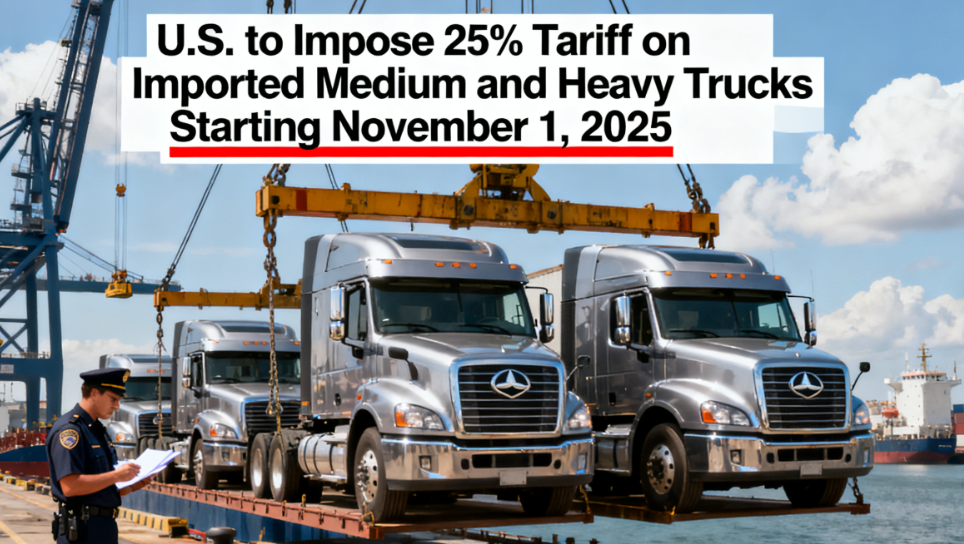U.S. to Impose 25% Tariff on Imported Medium and Heavy Trucks Starting November 1, 2025
Release time:
2025-10-07
October 6, 2023, Washington, D.C. — Former U.S. President Donald Trump announced on his social media platform "Truth Social" that starting November 1, 2025, all medium-duty trucks and heavy-duty trucks imported into the United States will be subject to an additional 25% tariff.
This move is an extension of the 25% tariff imposed on heavy-duty trucks announced on September 25, 2023, but this new policy will now also apply to medium-duty trucks. This means that truck importers from other countries and regions will face increased costs moving forward.
Tariff Policy Details:
Effective Date: November 1, 2025
Scope of Tariff: Applies to all imported medium-duty and heavy-duty trucks entering the U.S.
Tariff Rate: A 25% additional tariff
Trump's statement did not clarify whether the existing 25% tariff on heavy-duty trucks would be further increased to 50% starting November 1, 2025, or remain at the current 25%.
What Impact Will This Tariff Have on the Industry?
The announcement is expected to have significant implications for the U.S. truck import market. First, medium and heavy truck importers will face higher costs, which could drive up purchase prices and lead to market price fluctuations. Second, logistics and transportation companies will also be affected, particularly those relying on truck imports from China and other international markets, who may need to factor the additional tariff costs into their shipping quotes.
For freight forwarding companies, adapting to this shifting policy environment and providing efficient solutions for their clients will be key to remaining competitive in the market.
Recommendations and Response Strategies
For businesses involved in truck imports and logistics companies, here are some strategies to respond to the new tariff policy:
Plan Transport Costs in Advance: Freight forwarders should communicate with clients to ensure they understand how the additional tariffs will affect shipping costs, and provide updated quotes based on the new tariffs.
Diversify Supply Chains: Given the increase in tariffs on medium and heavy trucks, companies should consider optimizing their supply chains and explore sourcing from countries with lower tariffs to mitigate cost increases.
Strengthen Client Communication: Freight forwarding companies can proactively communicate with their clients, helping them adjust procurement plans in line with the new tariff policy, ensuring that they can respond promptly to any changes.
Passionship International Logistics Helps You Navigate Tariff Changes
As a professional international logistics provider, Passionship International Logistics will continue to monitor the latest tariff developments and provide targeted tariff analysis and logistics planning services to our clients. We are committed to helping you optimize your shipping plans and ensure smooth operations in a complex international trade environment.
If you would like to learn more about how to handle the new tariff changes or wish to receive updated shipping quotes, please don’t hesitate to contact us!










